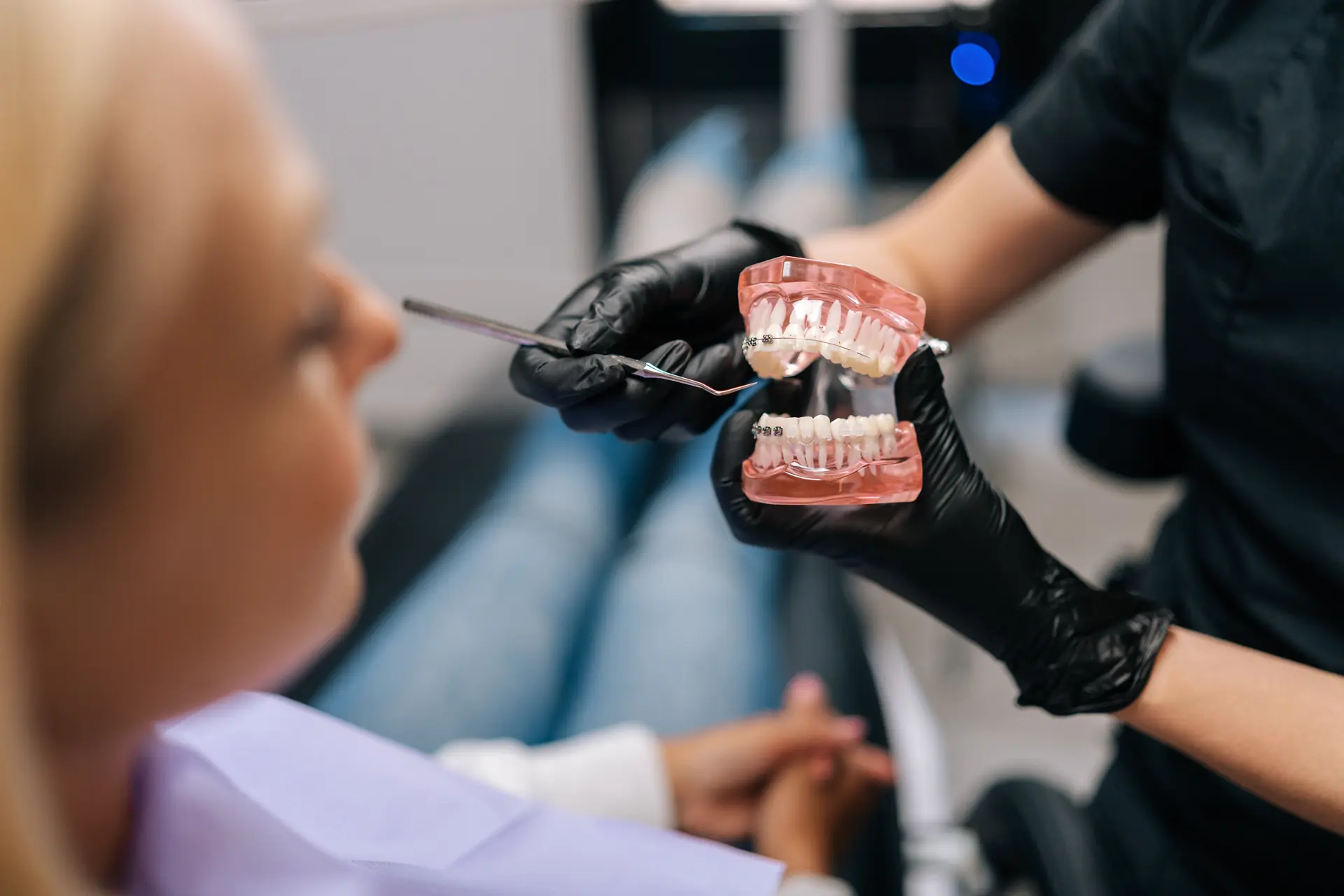They do not attach to gums, but the gums do surround the dental implant.
In the world of dentistry, implants are a great solution for those missing teeth. But often when people hear about them, they wonder, “Do gums attach to dental implants?” Well, the answer is… well, not exactly.
What Exactly is a Dental Implant?
A dental implant is an artificial tooth root made of biocompatible titanium that is surgically placed in the jawbone. This serves as an anchor for a replacement tooth or bridge. It can also serve as an anchor for overdentures and other appliance types. Basically what it does is provide support and stability while also preserving and protecting bone integrity in the jaw.
The Relationship Between Gums and Implants
Your gums are just as important to the success of dental implants as they are to natural teeth. When an implant is placed in your jawbone, it needs time to heal and integrate with your bone structure.
This process can take anywhere from three to six months depending on the type of implant and how quickly you heal. It’s during this healing period that your gums play an integral role in protecting the dental implant while it integrates with your jawbone.
So, do gums attach to dental implants? No, they don’t attach directly to each other; however, gums do surround the implant and hold it firmly in place. The gum tissue should be healthy around your implant so that it provides good protection from bacteria which could lead to infection or even failure of your implant.
Regular brushing and flossing are essential for ensuring that your gums remain healthy and protect your dental implants from any potential damage over time.
Gum Tissue Supports Natural Teeth
When you have natural teeth, gum tissue helps support them by providing cushioning for when you chew or bite down on something hard, like an apple or a rock (we don’t recommend trying either). This cushioning helps protect your teeth from cracking or breaking, which can be incredibly painful and expensive to repair. It also helps hold your teeth in place by creating a tight seal around them so they don’t become loose over time.
In addition to providing cushioning and stability for natural teeth, gum tissue also has a protective function when it comes to dental implants. Since implants do not have roots like natural teeth do, they rely on the surrounding gum tissue for protection against bacteria that can cause infection or decay.
That’s why it’s so important for patients with dental implants to practice good oral hygiene habits such as brushing twice daily, flossing once daily, and visiting their dentist regularly for checkups and cleanings.
Are Implants Different From Regular Teeth?
Implants are different from regular teeth in many ways. First, implants are artificial roots that are surgically inserted into the jawbone and topped with a crown. Implants look and function like natural teeth but they offer greater durability than traditional dentures or bridges.
Additionally, because implants integrate directly with the jawbone, they provide increased stability and support for your existing teeth. Implants also provide an easier and more comfortable fit than traditional dentures, as well as better chewing efficiency. Finally, implants can preserve bone density in the jaw area, which is not possible with regular teeth.
How Do You Care for Dental Implants?
Achieving a brighter, healthier smile doesn’t have to be complicated. With modern dental implants, you can easily replace missing or damaged teeth and restore your smile in no time. But achieving the beautiful smile you desire isn’t just about simply installing the implants—it’s also about taking care of them properly.
Here are some tips for how to care for your dental implants so they keep looking and feeling fresh:
Regular Cleaning Habits
Brushing and flossing your teeth twice a day are essential habits for anyone, but even more so for those with dental implants. When caring for your implants, make sure you brush gently and use a soft-bristled toothbrush. Flossing is also important because it will help remove plaque build up that can lead to gum disease and other oral health issues.
Finally, be sure to visit your dentist regularly for checkups and professional cleanings. They will make sure that everything looks good and suggest any changes you need to make in order to keep your implant clean and healthy.
Using an Antibacterial Mouthwash
An antibacterial mouthwash can help kill bacteria that cause gum disease and bad breath while protecting the gums around dental implants from infection. Be sure to look for an alcohol-free mouthwash as this can help reduce inflammation of the gums around the implant while still providing protection against bacteria. Regular water rinses after meals can help remove food particles stuck near the implant site which could lead to infection if not removed quickly enough.
Avoid Chewing Hard Foods
Chewing hard foods such as ice or hard candy can put too much pressure on the implant site which could potentially cause damage or breakage of the implant itself. It’s best to avoid these types of foods altogether in order to protect your investment!
Additionally, try cutting up fruits or vegetables into smaller pieces before eating them as well—this will reduce any potential strain on your implant site caused by trying to bite through them whole.
Visit Your Dentist Regularly
It’s important for people who have dental implants to visit their dentist regularly for checkups, cleanings, x-rays, and other tests so that any potential problems can be caught early on. During these visits, it is important that your dentist knows what type of implant system was used in order to provide the best care possible.
They may suggest certain products such as specialized brushes or interdental cleaners specifically designed to help clean around dental implants if needed—so make sure you ask them about these things at each appointment! Don’t forget—your new “chompers” need regular check-ups too!
Taking care of your dental implants is essential if you want them to last a lifetime! Regular brushing, flossing and visiting your dentist regularly are all important steps towards keeping them in tip-top shape.
Your gums play an essential role in supporting both natural teeth and dental implants alike—they provide cushioning for when you chew or bite down on something hard; create a tight seal around natural teeth; and protect implants against bacteria that can cause infection or decay.
So remember, even if gums don’t directly attach to dental implants like suction cups, their importance should never be underestimated! If you have any questions about how your gums may be affecting your oral health or dental implant success rate, we encourage you to talk with one of our skilled dentists at River District Smiles Dentistry today!


